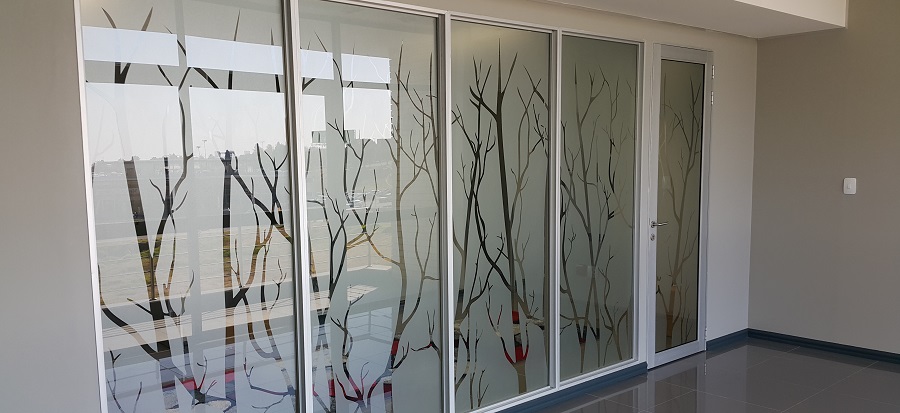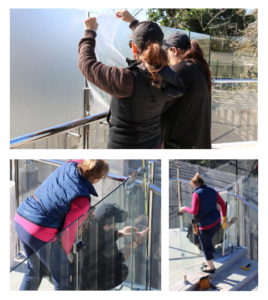Tinting Home Windows for Privacy: A Complete Guide
Window tinting is a popular solution for homeowners looking to enhance their privacy, security, and comfort. It involves the application of a thin layer of film on the glass surface of windows and doors to reduce the amount of sunlight, glare, and heat that enters the room while still maintaining a clear view of the outside. Tinted windows not only provide privacy but also offer several other benefits such as energy efficiency, UV protection, and reduced fading of interior furnishings. In this guide, we will explore the different types of window tints available, the legal considerations surrounding window tinting, and the best practices for DIY or professional installation and maintenance of tinted windows.
Types of Window Tints
When it comes to window tints for privacy, there are several types to choose from, each with its own set of features, benefits, and drawbacks.
- Dyed Window Tints:
Dyed window tints are the most commonly used tinting option. They are created by adding a layer of dye to the surface of the window. They are relatively inexpensive, and they block a considerable amount of sunlight and UV rays. However, they may fade over time, and their effectiveness may decrease with prolonged exposure to the sun.
- Metalized Window Tints:
Metalized window tints consist of a thin layer of metal or metallic particles that are embedded in the film. They are more durable than dyed tints, provide better heat rejection, and are less likely to fade or lose their effectiveness. However, they may interfere with electronic signals such as cell phone or radio reception.
- Ceramic Window Tints:
Ceramic window tints are the most advanced type of tinting option. They use advanced ceramic particles to provide superior heat rejection, UV protection, and glare reduction while still maintaining a clear view of the outside. They are the most expensive option, but they offer the most benefits and are the longest-lasting of all the options.
- Hybrid Window Tints:
Hybrid window tints are a combination of metalized and dyed tints. They provide good heat rejection and UV protection and are more durable than dyed tints. However, they may not be as effective as ceramic tints, and their price is closer to that of ceramic tints.
In conclusion, choosing the right type of window tint for your privacy needs depends on your budget, your specific needs, and your personal preferences. It’s essential to consider all the factors before making a decision.
Legal Considerations
Before installing window tints for privacy, it’s important to be aware of the laws and regulations surrounding their use.
- Laws and Regulations:
Window tinting laws vary from state to state and even from city to city. Some areas have specific requirements for the percentage of light allowed to pass through tinted windows. There may also be restrictions on the types of tints allowed on certain windows or vehicles. It’s important to research and understand the laws in your area before making a purchase.
- Different Levels of Tinting:
The percentage of visible light transmission (VLT) allowed through tinted windows can vary from 5% to 90%, depending on the location and the type of vehicle or property. For example, the front windshield of a car may have a maximum VLT of 70%, while the side and rear windows may have a maximum of 35%. Some areas may allow darker tints for rear windows than for front windows. It’s essential to know the legal VLT limits in your area and for your specific vehicle or property.
- Staying within Legal Limits:
To stay within legal limits, it’s essential to have the tinting installed by a reputable professional who is familiar with the local laws and regulations. Make sure to choose a film that is within the legal VLT limits for your area and your specific property or vehicle. It’s also important to have the tinting inspected regularly to ensure that it is still within legal limits and to avoid any potential fines or penalties.
In conclusion, it’s crucial to be aware of the laws and regulations surrounding window tinting to avoid any legal issues. Do your research and choose a reputable professional who is familiar with the local laws and regulations. By following the legal limits, you can enjoy the benefits of tinted windows while staying safe and compliant.
DIY vs. Professional Window Tinting
When it comes to window tinting, homeowners have the option of DIY installation or hiring a professional to do the job.
1. DIY vs. Professional Tinting:
DIY tinting can save money and allow for more customization, but it also requires a significant amount of skill and patience. Professional tinting is more expensive, but it ensures that the job is done correctly and quickly. Additionally, professional installers are familiar with local laws and regulations and can recommend the best type of tint for your specific needs.
2. Step-by-Step Guide for DIY Tinting:
- Clean the windows thoroughly with soap and water and dry them with a lint-free cloth.
- Measure the windows and cut the tint film to fit, leaving a small overlap on all sides.
- Spray the window with a solution of soapy water to help the film adhere and prevent air bubbles.
- Apply the tint film to the window, starting from the top and working your way down. Smooth out any air bubbles or wrinkles with a squeegee or credit card.
- Trim the edges of the film to fit the window exactly and let it dry for 24-48 hours.
3. Advantages of Hiring a Professional:
Professional tinting comes with several advantages, including:
- Experience: Professional installers have years of experience and can ensure that the job is done correctly.
- Time-saving: Professional installation can be completed quickly and efficiently, saving homeowners time and energy.
- Warranty: Many professional tinting companies offer warranties on their work, providing peace of mind to homeowners.
- Quality: Professional installers use high-quality tint films that are guaranteed to last and offer superior performance.
In conclusion, whether you choose to install window tints yourself or hire a professional, it’s important to consider the benefits and drawbacks of each option. DIY tinting requires skill and patience, while professional installation ensures a quick and efficient job. Either way, window tinting can offer several benefits for homeowners looking to enhance their privacy, security, and comfort.
Maintaining Tinted Windows
Proper maintenance is essential for extending the lifespan of tinted windows and ensuring their continued performance.
1. Care and Maintenance:
- Avoid cleaning tinted windows with abrasive or ammonia-based products, as these can damage the film.
- Use a soft, non-abrasive cloth and a mild soap solution to clean the windows.
- Avoid using high-pressure water or sharp tools to remove any dirt or debris from the tinted surface.
- Do not roll down the windows for at least 48 hours after installation to allow the film to cure properly.
- Do not use any stickers, decals, or adhesives on the tinted surface, as these can damage the film.
2. Tips for Extending Lifespan:
- Park your car or position your property to avoid prolonged exposure to direct sunlight, as this can cause the film to fade or peel.
- Use a sunshade or window tint film that has UV protection to prevent damage from harmful UV rays.
- Regularly inspect the tinted windows for any signs of damage or peeling and address them promptly to prevent further damage.
- Avoid using sharp objects or tools that can scratch or damage the film.
By following these tips and taking proper care of tinted windows, homeowners can ensure that their investment lasts for years to come. Regular maintenance and proper care can also help prevent damage and prolong the lifespan of the tint film, providing continued privacy, security, and comfort.
Conclusion
In conclusion, window tinting is an excellent way to enhance privacy, reduce energy costs, protect furniture and other items from UV damage, and add an aesthetic appeal to any property. Tinted windows offer several benefits for homeowners and provide an effective solution for those looking to enhance privacy in their homes or cars.
Whether you choose to install the tint yourself or hire a professional, it’s important to consider the different types of tint available and the legal considerations surrounding the installation process. Additionally, proper maintenance and care are essential for ensuring the longevity and continued performance of tinted windows.
If you’re looking for an effective way to enhance your privacy and comfort, consider installing window tints today. With the proper research, installation, and maintenance, tinted windows can provide numerous benefits for homeowners and offer a simple, cost-effective solution for enhancing privacy.




